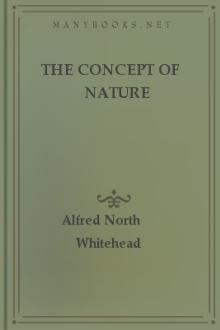The Concept of Nature
Book Excerpt
By a demonstrative phrase I mean a phrase which makes the recipient aware of an entity in a way which is independent of the particular demonstrative phrase. You will understand that I am here using 'demonstration' in the non-logical sense, namely in the sense in which a lecturer demonstrates by the aid of a frog and a microscope the circulation of the blood for an elementary class of medical students. I will call such demonstration 'speculative' demonstration, remembering Hamlet's use of the word 'speculation' when he says,
There is no speculation in those eyes.
Thus a demonstrative phrase demonstrates an entity speculatively. It may happen that the expositor has meant some other entity--namely, the phrase demonstrates to him an entity which is diverse from the entity which it demonstrates to the recipient. In that case there is confusion; for there are two diverse propositions,
Editor's choice
(view all)Popular books in Fiction and Literature, Philosophy
Readers reviews
- Upvote (0)
- Downvote (0)
entitled "The Aims of Education" is clear, not of great content, but it makes sense. This "The Concept of Nature" is worse than worthless. It came out in 1919, well over a decade after Eieinstein's Special relativity came out, and three years after Einstein's General Relativity came out, though the experimental verification was not to be for several years after 1919.
This work could have as well have been written in the Middle Ages. If it is intended to have any serious purpose, the purpose is well hidden.

 Free Download
Free Download























